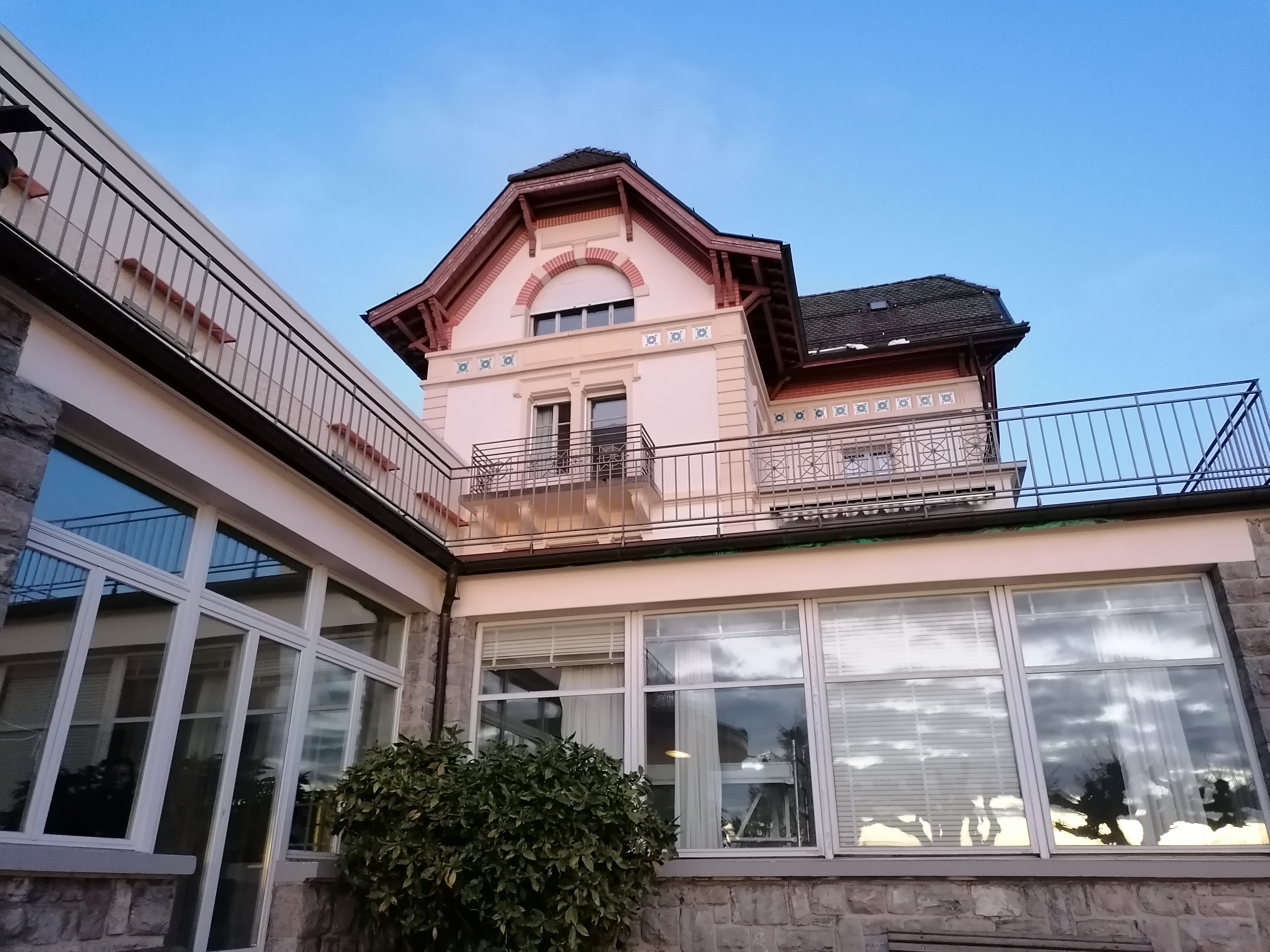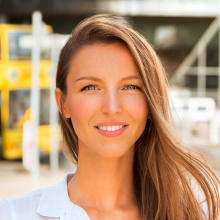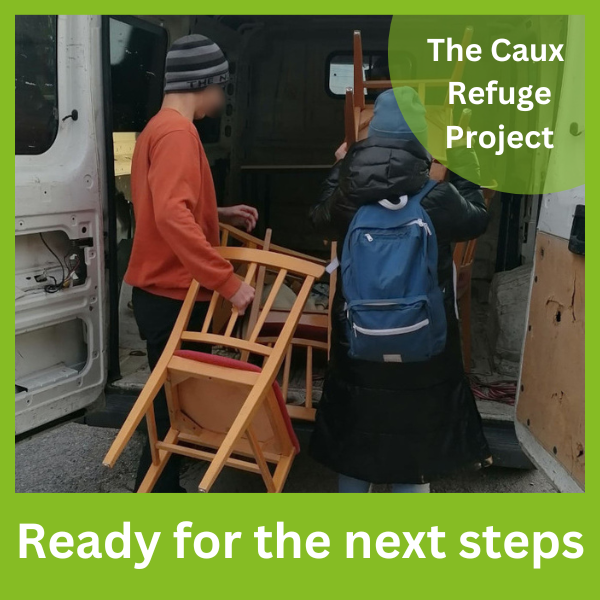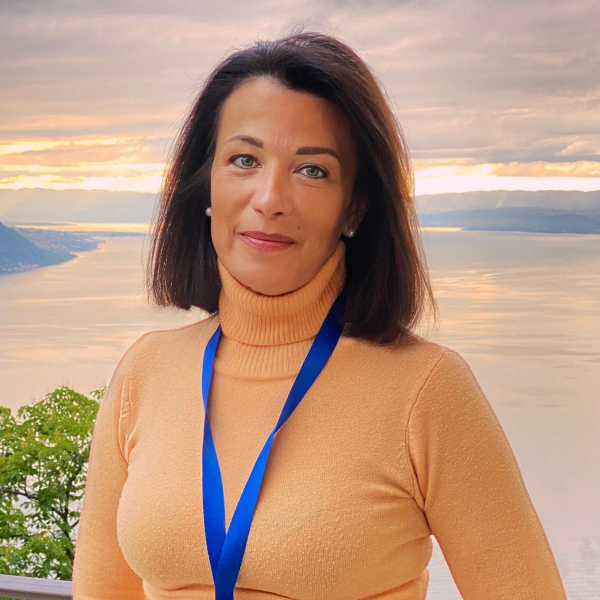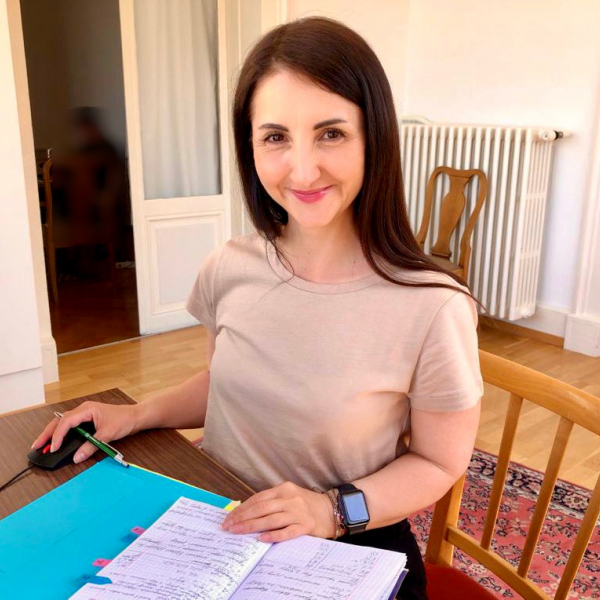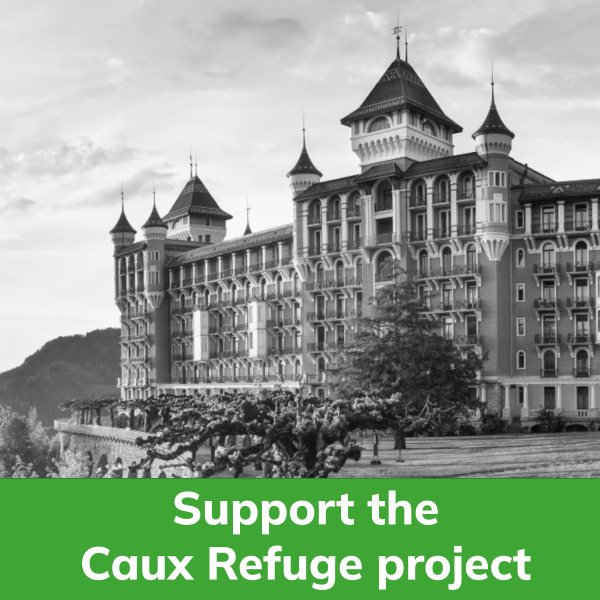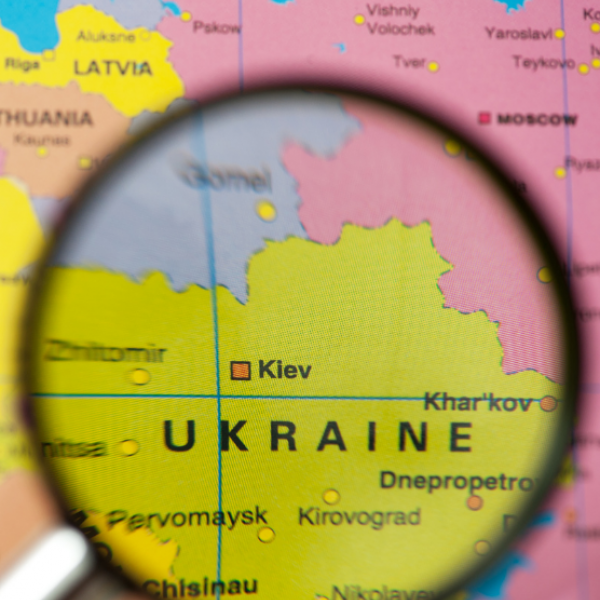‘We were incredibly lucky’
A Caux Refuge interview by Anastasia Slyvinska
15/04/2022
This article is the second in a series of interviews with people affected by the war in Ukraine who have found temporary shelter at the Caux Refuge.
For more than a week Anatolii, Tetiana, and their three sons lived without electricity, heating or water in freezing temperatures in the village of Horenka near Kyiv. After a long journey through Ukraine and the EU they have now found peace in Caux.
Now the boys are enrolled in a local school. They are playing and laughing once again and Anatolii and Tetiana say they can’t wish for more.
__________________________________________________________________________________________________________
How did the war in Ukraine start for your family?
Anatoli: Everything started in the first minutes of day one, at 4am on 24 February. Helicopters came. Some people said there were around 30 of them. By 9 am three of them were on fire, very near to our house. That was the start of the war.
Were you at home with your children when the Russian army attacked?
Anatolii: Yes, we were working from home, so we were there with the kids. It was impressive to see the helicopters being shot down. Then Ukrainian helicopters came and started to fly above our forest to protect Hostomel, the city and airport northwest of Kyiv. All this was very loud. We saw enemy combat Mi-24 and K-52 helicopters.
So you knew the difference already?
Anatolii: Yes, we did know the difference from the experience of the past eight years. Their helicopters are much louder as well. On the first day, it was only combat helicopters. But the next day the artillery fire landed 200 or 300 metres away from our house. I think it was a howitzer: I don’t know for sure. Some people were curious – and it ended badly for them.
Tetiana: Yes, so we didn’t go to check. The electricity and heat were turned off the same day. There was no water as well. It was freezing cold.
When did you realize that the situation had escalated? When did you consider leaving?
Anatolii: Tetiana didn’t want to leave at all.
Tetiana: I hoped that even if Russian troops attacked, they would follow the Hostomel highway. But then the Ukrainian army blew up the main bridge through Irpin, so that the Russians couldn’t attack over it. They tried five times to blow up a small bridge through Moschun, a village near Kyiv, but it wasn’t destroyed, so the Russians were able to use that. They devastated Moschun and started work on our village. The streets in the village centre were all burning.
So the area where you lived was under attack from the very beginning?
Tetiana: They started artillery shelling gradually from the first week. Three houses at first, then more…. On 3 March, I think, our industrial zone was already burning. All the horizon was red with flames.
Had you anticipated the war and made any preparations beforehand?
Anatolii: During the first few days, we organized a local self-defense group. Even the children of our community helped to build the checkpoint. Our three boys helped to bring tyres from our yard to build it. There were about 15 self-organized adult men. We built Czech hedgehogs (a static anti-tank defence made of metal angle beams) and set up a rota for everyone to be on duty. But we only had one hunting gun and one pneumatic weapon between us.
Tetiana: So we had no weapons to protect ourselves. Our community was completely unprepared for the war. Nothing was ready, absolutely nothing. We had no evacuation plan.
How and when did you decide to evacuate?
Anatolii: It took us a while to wrap our minds around the fact that we needed to evacuate.
Tetiana: There was shelling for the first eight days but not all the time. But when we heard shelling – buh-buh-buh-buh – the whole time, we understood that… (Tetiana’s voice breaks).
Anatolii: I went to the hospital to offer help, because the central military hospital was already full and unable to keep up with the influx of injured people. And the Leleka private maternity hospital was treating the injured. Eight guys were injured and two killed in the first fight. I saw this all happening in front of my own eyes and helped as I could.
Tetiana: Even then we hoped that the Ukrainians would push them away from the Kyiv region. I had a feeling that as long as I stayed nothing would happen to our home. But then, after a week, I understood that this was not a good idea. I knew that we needed to save our kids first and forget about the house.
What happened next? Did you leave by car?
Anatolii: Only Tetiana with the kids at first, not me. I stayed with our rabbits. (Tetiana and Anatolii laugh.) I was on duty at our local checkpoint. I’ve seen them using Pion howitzers. It was unforgettable – it looked like a small nuclear explosion. There were no dead bodies afterwards because temperatures were so high. Everything was burned to ashes.
Tetiana: I spent one night with the kids in our small apartment in Kyiv and we left at 7 am the next morning. I didn’t have any plan except to drive West. I had no specific destination in my head: wherever I drove to would be OK. I had never driven for more than an hour in my entire life. I don’t know where I got the energy to drive from 7 am until it got too dark to drive. By then we were in Vinnytsia.
Did you go on volunteering, Anatolii, after your family left?
Anatolii: There were still many people who had decided to stay in Horenka. Even when a lot of houses had been burnt to ashes, people thought that the Russians were just clearing their way along the Warsaw highway, through which they planned to attack.
During these times I was evacuating neighbours who had stayed in our village. The problem wasn’t evacuating, the problem was where to? I evacuated one family to our apartment in Kyiv, where they are still living. I hope they will be safe there. I evacuated another couple of families to their families. But then the Russians started to target all moving objects and it wasn’t safe to continue. I’ve seen a lot of wrecked cars in villages and there is also a lot of photo proof from Horenka. Looking back, I was just incredibly lucky.
Do you know if your house still exists now?
Anatolii: It has no windows, but it’s still there. We are very lucky because the bomb destroyed a part of our neighbour’s house. The school of our kids has been burnt down.
What country in the EU did you plan to go to initially?
Anatolii: There was no plan here either. Tetiana was moving in the direction of Romania. Before we reunited, I didn’t sleep for 36 hours straight.
How were the kids through all of this? Were you able to explain what had happened? How did you keep them occupied?
Tetiana: Maybe we will see consequences in the future. We didn’t explain anything at all to them.
Anatolii: While we were still at home, there were two main tasks – chopping firewood to heat the house and cooking meals. I was at the checkpoint most of the time, there was constant artillery shelling. We could not hide in the basement because our house is situated in a swampy area. The children occupied themselves. Most of the time, they were just trying to get warm. The oldest helped with chopping firewood. When we got to the EU, we were on the move the whole time. They slept most of the time in the car since they were so exhausted. They didn’t even ask where we were going.
Tetiana: They probably just knew that in Ukraine there were bombs and shooting and here not. That was enough for them. They didn’t show signs of great anxiety or stress and that was a help. I don’t know how we would have got anywhere at all if they had been crying. We got lost many times on our way to Switzerland. But compared to what we went through in Ukraine it was nothing.
Anatolii: We were very lucky.
Did you manage to get your kids into a local school near Caux?
Anatolii: Yes, the school here is fantastic. They organized a special class with five boys, a teacher and a translator.
Tetiana: The boys love badminton and there is a wonderful centre in Lausanne.
How was your welcome in Caux?
Tetiana: We’re very happy that we were welcomed so kindly here in Caux. We had very limited resources and no idea what we would do. After these eight days in Ukraine without light and electricity, with nothing, it’s an absolute paradise here.
Anatolii: We did not expect such a welcome at all. We want to thank everyone from IofC Switzerland for all for the organizational work they did when we arrived and for helping us get our kids into school. They really gave our kids a chance!
About the author
Anastasia Slyvinska is a journalist from Kyiv, Ukraine. She has worked as a TV host, a foreign reporter and a manager for media outlets in Ukraine and abroad. Having worked at both Ukrainian and Canadian Parliaments she combines her media expertise with her political sciences background, holding a MA in Political Science. Anastasia has been part of the IofC community since 2014 when she first participated at the conference Just Governance for Human Security. She is currently living in Lausanne, Switzerland.
YOU CAN HELP!
As our own sources of funding are running out, we need your help to support the Caux Refuge project financially. We need CHF 20,000 to ensure that the group can be hosted until the end of 2022. We will use these funds to finance food aid and other costs related to the group's stay at the Villa Maria in Caux.
We thank you for your support. Please pledge your support here and specify “Caux Refuge” when making your contribution. If you have any proposals and questions, please get in touch with us.

Please note that the opinions expressed in these articles are those of the interviewees and not do not necessarily reflect the opinion of the interviewer and Initiatives of Change Switzerland.
